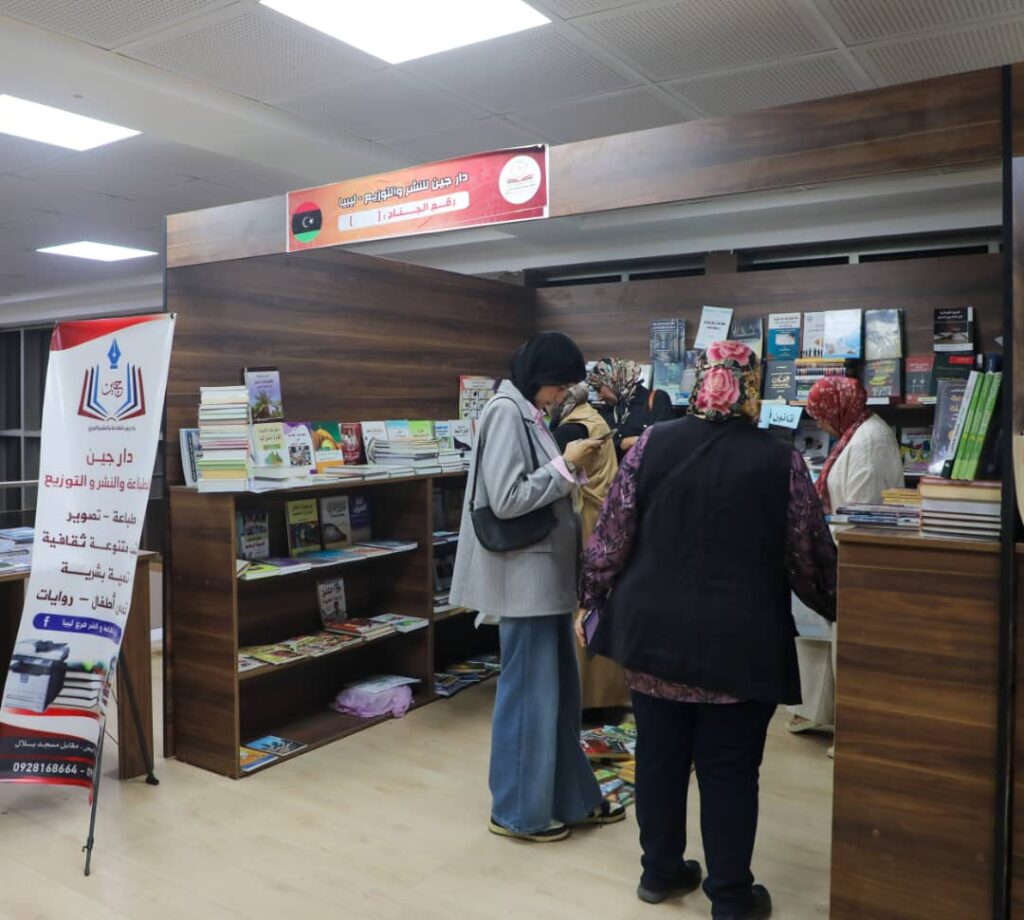Benghazi – The fourth session of the Benghazi International Book Fair witnessed a notable Egyptian presence, bringing together major publishing houses and specialized bookstores. This added a new intellectual dimension to the fair and contributed to enhancing the exchange of literary and intellectual expertise between Egypt and Libya.
The Egyptian participation was characterized by a wide variety of titles spanning literature, philosophy, humanities, and children’s books, which attracted the interest of the Libyan reader and highlighted the differences between the two markets in terms of taste and choices.
Jihan Ismail, the executive director of Jean House for Printing, Publishing, and Distribution, affirmed in a statement to the Libyan News Agency that the Egyptian participation constituted a qualitative addition.
She added, “We presented a collection of publications that have achieved popularity in Egypt, and we noticed a significant response from the Libyan reader who is looking for diverse topics and intellectual distinctiveness.”
Ismail continued, “While the Egyptian reader often leans towards publications with local momentum, we found in Libya a market open to books of a distinguished intellectual character. We hope that Libya will become a new gateway for expanding Egyptian publishing in the Arab world and for building a sustainable knowledge bridge between Cairo and Benghazi.”
For his part, Abdul Rahman Khaled of Tanmia Publishing and Distribution House explained that the demand for Egyptian books reflects their standing among Libyan readers, saying, “We witnessed a distinguished presence of Egyptian publishing houses, which gave the fair additional momentum. Egyptian publications remain a reference for the Libyan reader, whether in literature, philosophy, or the humanities.”
He noted that the Libyan reader is very inclined towards stories of local identity and Libyan experiences, whereas the Egyptian reader operates within a crowded and diverse market, which sometimes pushes them to seek what is new and unconventional. “We are keen to provide high-quality Egyptian books at reasonable prices, especially in light of the logistical challenges facing the Libyan market.”
“The fair is a golden opportunity to open direct channels between Egyptian publishers and Libyan distributors, and we hope this session will be the beginning of a deeper cooperation that leads us to a common Arab reader, enriched by knowledge and brought together by mutual visions,” according to Abdul Rahman.
In sum, the Egyptian presence at the Benghazi International Book Fair has reshaped the landscape of Arab cultural cooperation, affirming that books are capable of building bridges of understanding between peoples.
It also highlighted the distinctiveness of the Libyan reader, who seeks diversity while preserving local identity, compared to the Egyptian reader who is more influenced by the momentum of the publishing market and popular titles. This makes cultural fairs a meeting point for cultures and a space for exchanging knowledge and expertise.
